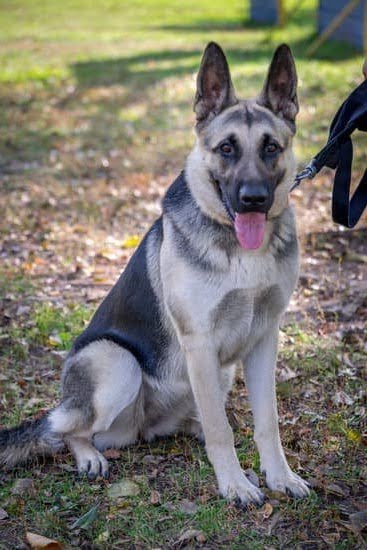Are you interested in learning how to become a guide dog trainer in NSW? Guide dog trainers play a crucial role in helping visually impaired individuals lead independent and fulfilling lives. In New South Wales, there are various educational programs and opportunities for aspiring guide dog trainers to pursue this rewarding career path.
Guide dog training in NSW involves working with dogs to provide assistance and support to people with visual impairments. This specialized field requires individuals to possess a unique set of qualities and skills, including patience, empathy, strong communication skills, and a genuine love for working with animals. Additionally, guide dog trainers need to have a thorough understanding of canine behavior and training techniques.
In order to become a guide dog trainer in NSW, individuals typically need to complete specific educational requirements and training programs. There are various organizations and institutions in the region that offer certification programs for aspiring guide dog trainers. These programs provide students with the necessary knowledge and practical skills needed to work effectively with guide dogs and their handlers.
Qualities and Skills Needed to Become a Guide Dog Trainer
Becoming a guide dog trainer in NSW requires a specific set of qualities and skills to excel in this rewarding profession. One of the most important qualities needed is patience. Guide dog training is a process that takes time, as dogs need to learn various commands and behaviors gradually. Patience is essential when working with these intelligent animals, as progress may be slow at times.
Another crucial quality for aspiring guide dog trainers is compassion. Working with visually impaired individuals who rely on guide dogs for mobility means understanding the importance of these animals in enhancing their quality of life. Being compassionate towards both the dogs being trained and the people they will eventually assist is key to building strong bonds and trust in this line of work.
In addition to patience and compassion, good communication skills are vital for guide dog trainers. They must be able to effectively communicate with both the dogs through commands and cues, as well as with their human clients by providing guidance and support throughout the training process. Clear, concise communication ensures that all parties involved understand expectations and can work together seamlessly towards achieving successful outcomes.
| Qualities Needed | Skills Required |
|---|---|
| Patience | Good Communication Skills |
| Compassion | Understanding of Animal Behavior |
Educational Requirements and Training Programs Available in NSW
Becoming a guide dog trainer in New South Wales (NSW) requires a combination of education, training, and hands-on experience. It is essential to have a solid understanding of canine behavior, breed characteristics, training techniques, and the specific needs of individuals with visual impairments.
For those looking to pursue a career as a guide dog trainer in NSW, there are several educational requirements and training programs available to help develop the necessary skills. Here are some options to consider:
- Enroll in a formal education program: Several colleges and universities offer courses or degree programs related to animal behavior, veterinary science, or guide dog training. These programs provide students with a solid foundation in canine behavior and training methods.
- Attend specialized workshops or seminars: There are organizations that offer short-term workshops or seminars focused on guide dog training. These can be a valuable opportunity to learn specific techniques and gain practical experience.
- Participate in online courses: For those looking for more flexibility, online courses can be a great option. There are reputable institutions that offer distance learning programs on guide dog training.
In addition to formal education programs, aspiring guide dog trainers in NSW can also benefit from hands-on experience through internships or apprenticeships with established guide dog organizations. This practical experience allows individuals to work directly with dogs undergoing training and learn from experienced trainers in real-world settings.
Ultimately, the key to success in becoming a guide dog trainer in NSW is to continuously seek opportunities for learning and professional development. By staying current with industry trends and best practices, individuals can enhance their skills and increase their chances of making a positive impact on the lives of both dogs and people with visual impairments.
Gaining Hands-on Experience Through Volunteer Work With Guide Dog Organizations
Volunteer work often involves assisting with the care and training of guide dogs, helping to socialize them, and participating in obedience training sessions. This hands-on experience allows aspiring guide dog trainers to gain valuable insights into the unique challenges and rewards of working in this field. Additionally, volunteers may have the opportunity to shadow certified guide dog trainers during client visits and training sessions, further enhancing their understanding of the role.
One key benefit of volunteering with guide dog organizations is the opportunity to forge connections within the industry. Building relationships with experienced trainers and other professionals can provide valuable mentorship and networking opportunities that can be beneficial when pursuing a career as a guide dog trainer in NSW. Moreover, by demonstrating dedication and a strong work ethic as a volunteer, individuals can enhance their reputation within the organization and increase their chances of securing future employment or training opportunities.
| Aspect | Details |
|---|---|
| Volunteer Tasks | Assisting with care and training of guide dogs, socializing dogs, participating in obedience training sessions |
| Benefits | Hands-on experience, insights into challenges/rewards, networking opportunities, potential for future employment |
Certification and Licensing Process for Guide Dog Trainers in NSW
To become a guide dog trainer in New South Wales (NSW), individuals must follow a certification and licensing process to ensure they have the necessary skills and qualifications for this important role. Here is a step-by-step guide on how to obtain the required certifications and licenses to become a guide dog trainer in NSW:
- Complete an accredited guide dog training program: In order to become a guide dog trainer in NSW, individuals must first complete an accredited guide dog training program. These programs provide comprehensive training on how to train and work with guide dogs, as well as the principles of animal behavior and welfare.
- Obtain relevant certifications: After completing a guide dog training program, individuals can pursue certifications such as the Certificate IV in Guide Dog Training and Instruction. This certification demonstrates that the individual has met the required standards for training guide dogs in NSW.
- Gain practical experience: In addition to completing a training program and obtaining certifications, individuals looking to become guide dog trainers in NSW must also gain practical hands-on experience working with guide dogs. This can be achieved through volunteer work with guide dog organizations or by completing internships with experienced trainers.
By following these steps and completing the necessary requirements, aspiring guide dog trainers can successfully obtain the certifications and licenses needed to begin their rewarding career in NSW. It is important to stay updated on any additional requirements or changes in regulations within the field of guide dog training to ensure compliance and continued professional development.
Job Opportunities and Career Path for Guide Dog Trainers in NSW
When it comes to job opportunities and career paths for guide dog trainers in New South Wales (NSW), there are various avenues to explore in this rewarding field. Guide dog trainers play a crucial role in assisting individuals with visual impairments to navigate the world with confidence and independence.
Job Opportunities for Guide Dog Trainers
There are several organizations in NSW that provide training services for guide dogs, such as Guide Dogs NSW/ACT, Vision Australia, and other similar institutions. These organizations often hire trained guide dog trainers to work directly with the dogs and their future owners. Additionally, some private training facilities may also offer employment opportunities for those interested in pursuing a career as a guide dog trainer.
Career Path for Guide Dog Trainers
As a guide dog trainer gains experience and builds their skills in NSW, they may have the opportunity to advance within their organization or seek higher-level positions. This could include becoming a lead trainer, a program coordinator, or even starting their own training facility or consultancy. Continuing education and professional development are key components of advancing in this field, as new techniques and approaches in guide dog training continually evolve.
Salary Range and Benefits in the Field of Guide Dog Training in NSW
Salary Range for Guide Dog Trainers in NSW
Guide dog trainers in New South Wales can expect to earn a competitive salary for their specialized skills and important work. The average salary range for guide dog trainers in NSW typically falls between $50,000 to $80,000 per year, depending on factors such as experience, certifications, and the specific organization they work for. As you gain more experience and expertise in the field of guide dog training, there may be opportunities for advancement and higher pay scales.
Benefits of Being a Guide Dog Trainer in NSW
In addition to a rewarding career helping visually impaired individuals gain independence and mobility through trained guide dogs, there are several other benefits to becoming a guide dog trainer in NSW. Many guide dog organizations offer benefits packages that may include health insurance, retirement plans, paid time off, and professional development opportunities. Working with these organizations also provides a supportive and fulfilling work environment where you can make a real difference in the lives of others.
Professional Growth Opportunities
As a guide dog trainer in NSW, there are various opportunities for professional growth and advancement within the field. You may have the chance to take on leadership roles within guide dog organizations, such as supervisory positions or program management roles. Some trainers also choose to specialize in training specific types of guide dogs or pursue further education and certifications to enhance their skills.
Continuous learning and staying updated on the latest advancements in guide dog training techniques can help you excel in your career as a guide dog trainer in NSW. By continuously improving your skills and knowledge, you can contribute even more effectively to helping visually impaired individuals live independently with the assistance of well-trained guide dogs.
Tips for Success in Pursuing a Career as a Guide Dog Trainer in NSW
If you are considering a career as a guide dog trainer in New South Wales (NSW), there are some key tips to keep in mind to help you succeed in this rewarding profession. Firstly, it is important to possess a genuine love and passion for working with animals, particularly dogs.
Guide dog training requires patience, understanding, and empathy, as well as the ability to communicate effectively with both dogs and their owners. Additionally, being physically fit and able to handle large, strong animals is essential for this role.
In order to excel as a guide dog trainer in NSW, it is crucial to continuously educate yourself on the latest training techniques and methods. Keeping up-to-date with advancements in the field of animal behavior and training will not only benefit your own skills but also ensure that you are providing the best possible service to the guide dogs under your care.
Networking with other guide dog trainers and professionals in related fields can also provide valuable insights and support in your journey towards becoming a successful guide dog trainer.
Another important tip for success in pursuing a career as a guide dog trainer in NSW is to be prepared for ongoing learning and personal growth. Embracing opportunities for further training, workshops, and certifications will not only enhance your skills but also demonstrate your commitment to professional development within the industry. By staying dedicated and proactive in your career development, you can create a fulfilling and impactful career as a guide dog trainer in NSW.
Conclusion
In conclusion, becoming a guide dog trainer in NSW can be a truly rewarding and fulfilling career path for those who have a passion for helping others through the incredible partnership between humans and guide dogs. By possessing the right qualities and skills, obtaining the necessary education and training, gaining hands-on experience through volunteer work, and completing the certification process, individuals can embark on this meaningful journey of making a difference in the lives of visually impaired individuals.
One of the key aspects of becoming a successful guide dog trainer in NSW is understanding the deep bond that forms between a guide dog and its handler. This bond goes beyond just training techniques and commands; it involves trust, empathy, patience, and dedication to ensuring the safety and independence of the visually impaired individual. Guide dog trainers play a crucial role in fostering this special relationship and providing ongoing support to both the handler and their canine partner.
Aspiring guide dog trainers in NSW should also be prepared for a career that offers not only competitive salaries but also intangible rewards that come from knowing that their work has a direct impact on improving someone’s quality of life. The field of guide dog training provides opportunities for personal growth, skill development, and a chance to be part of a community that is dedicated to making positive changes in society.
Ultimately, by pursuing a career as a guide dog trainer in NSW, individuals have the opportunity to experience firsthand the joy of transforming lives through the power of human-animal partnerships.
Frequently Asked Questions
How Do I Become a Guide Dog Trainer in USA?
To become a guide dog trainer in the USA, one typically needs a relevant bachelor’s degree, such as animal science or behavior psychology. One could also pursue certification through organizations like the Association of Professional Dog Trainers or the Certification Council for Professional Dog Trainers. Gaining experience through internships and volunteering with guide dog training programs is essential.
Can You Make Money Training Guide Dogs?
Yes, it is possible to make money training guide dogs in the USA. Guide dog trainers can be employed by organizations that provide guide dogs to visually impaired individuals, and some trainers may even choose to start their own business.
The income potential can vary depending on factors such as experience, location, and whether one works independently or through an organization.
How Many Months Does It Take to Train a Guide Dog?
The training process for a guide dog typically takes around four to six months. This includes basic obedience training, socialization, specialized tasks related to guiding visually impaired individuals, and public access skills. The length of time can vary based on the individual dog’s progress and abilities, as well as the specific requirements set by guide dog training programs.

Welcome to the blog! I am a professional dog trainer and have been working with dogs for many years. In this blog, I will be discussing various topics related to dog training, including tips, tricks, and advice. I hope you find this information helpful and informative. Thanks for reading!





